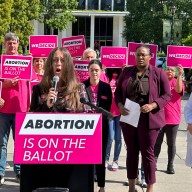By Lindsay Dunsmuir and Pete Schroeder
WASHINGTON (Reuters) – If President Donald Trump’s comments that the Federal Reserve risked killing U.S. economic growth with higher interest rates was even discussed at a policy meeting that ended on Wednesday, there was no sign of it as the central bank indicated it would stick with its forecast of two more rate increases this year.
The 273-word policy statement from the Fed’s rate-setting committee was unanimously agreed by its eight members, including two Trump appointees, Chairman Jerome Powell and Randal Quarles, the central bank’s vice chair for supervision.
Wednesday’s statement described the economy as “strong,” using language that was largely unchanged from the Fed’s policy statement in June. Trump blasted the central bank for raising rates in a July 19 interview with CNBC.
The Fed’s upbeat assessment keeps it on track to lift borrowing costs at its next meeting in September.
Investors now see a 90 percent probability the Fed will raise rates in September and see a further hike in December, according to an analysis of Fed funds futures contracts compiled by the CME Group.
“I don’t know if Trump did himself any favors whining about the Fed hiking interest rates. The reality is that the Fed is doing the right thing,” said Phil Orlando, chief equity strategist at Federated Investors in New York.
Trump, while stressing that his comments were those of a private person, broke with the tradition that presidents do not comment on Fed policy when he told CNBC that “all of this work we are putting into the economy” risked being undermined by the Fed’s push for higher rates.
His comments drew charges that he was seeking to influence monetary policy for political gain as President Richard Nixon did when he pressured the Fed to delay raising rates beyond the 1972 elections.
During his 2016 election campaign, Trump accused then-Chair Janet Yellen of playing politics by keeping rates low to help Democratic presidential nominee Hillary Clinton’s electoral chances. Once in office, Trump replaced Yellen with Powell, breaking with the tradition that Fed chiefs serve two terms.
WARMER WELCOME
While Powell, who trained as a lawyer, may lack his predecessor’s economic heft, he also comes without some of the baggage that led to a barrage of criticism from Republican lawmakers who demanded Yellen increase rates and cut regulation.
A former Treasury official in President George H.W. Bush’s administration, Powell was appointed a Fed governor in 2012. Since taking the Fed’s reins, he has received a warmer welcome than Yellen, even though he says he is broadly following the path she set. The Fed raised rates from near zero and withdrew emergency policy measures during Yellen’s one term as Fed chief.
As a governor, Powell’s voting record shows he sided with Yellen in every policy decision. As Fed chairman he has overseen two rate rises and has been credited by Republican legislators for bringing predictability to the central bank.
Senator Bob Corker, a Republican from Tennessee, praised Powell’s stance, saying that under his leadership, the Fed “is getting really boring these days” even though Powell has trodden carefully in Yellen’s policy footprints.
Where the Fed under Powell and Quarles has made changes from the Yellen era has been in paring back Obama-era financial regulations introduced to stop a repeat of the 2008 financial crisis.
But Quarles has only made modest changes to the central bank’s framework since being confirmed as its point person on banking regulation and he has already faced Republican criticism for the Fed’s initial efforts to rewrite the crisis-era “Volcker Rule” that bars risky trading by banks.
His defense of U.S. participation in global regulatory bodies like the Financial Stability Board has also drawn Republican ire, but that has not been accompanied by threats to legislate so as to limit Fed participation in these bodies, as happened during the Obama administration.
(Reporting by Lindsay Dunsmuir and Pete Schroeder; Additional reporting by Herb Lash in New York; Writing by David Chance and Lindsay Dunsmuir; Editing by Paul Simao)


















